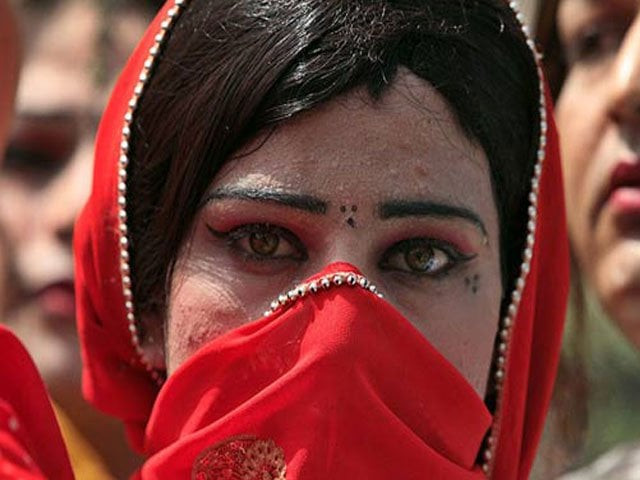Poking fun at the weak
It is said the measure of development of a society is reflected in how it treats its weak and marginalised

The body has been sent to Khyber Medical College for autopsy. PHOTO: Reuters
The transgender community in Pakistan is poor, vulnerable and marginalised but worst of all ridiculed. The new flavour of comedy talk shows routinely take cheap shots at the transgender community. Some would argue that these skits are among the most popular segments of these shows, returning routinely to feed into the great demand. The caricature of the transgender community in these shows is someone who is ugly, uncouth, indecent and starving for attention (both physical and monetary). The jokes are cheap and offensive, and show our deep insensitivity to the plight of the community. Perhaps the saddest part of these so-called comedy shows is that the audience demands such degradation of human decency and finds these situations funny. That audience is all of us.
Given our perceptions, it is no surprise that we routinely hear about violence against the transgender community. Most recently, a badly mutilated body was found in Peshawar, but that is the latest episode in a long chain of tragic episodes against our fellow citizens. While I hope that the perpetrators of the crime are found and brought to justice expeditiously, the chances of justice taking its course are slim. That is not only because our justice system needs reform, but also because anyone who is considered subhuman and fights social stigmas is unlikely to find justice anywhere in the world.
The condition of the transgender community in Pakistan is miserable and we are all guilty in this. Growing up, in our family and social circles, the transgender community was represented as somehow an alien species — a decent citizen wannabe, a group that was not quite the rightful heir of being called people. This was reinforced by a fundamental lack of respect in my own surroundings. Instead of learning about respect, our schoolteachers would either crack jokes about the transgender community, or demean someone by telling him that he was “one of them.” This brainwashing was reinforced further by the increasingly present television shows where professional comedians would make a living by cracking jokes at the expense of the vulnerable community. It took a long time for me to realise how poor my own perceptions were and how deeply flawed my own judgment was.
While there are some signs of hope in the recent past, ranging from census to national ID cards and passports, there is still a long way to go. The recognition of the community by the government is a step in the right direction, but just one step. This needs to be further integrated into programmes that ensure the well-being of these equal citizens of Pakistan. Further, there are other powerful social structures that need reform. That must include our education and awareness in schools and classrooms. Young children who are in an impressionable age should be taught the fundamental human value of respect, in and outside the classroom.
More importantly, we need to call out those who continue to perpetuate incorrect myths about the community. The media should bring to attention the plight of the community and bring strong role models forward who are working within and outside the group to bring equality, justice and fairness. These people are the real heroes of our society and need to be recognised as such.
Comedy is part of a vibrant society, but stigmatisation of any community should never be acceptable in any format. Just as it is unacceptable to make fun of the orphan, the widowed, the handicapped — making fun of the transgender should also be a red line, never to be crossed.
Published in The Express Tribune, October 24th, 2017.
Like Opinion & Editorial on Facebook, follow @ETOpEd on Twitter to receive all updates on all our daily pieces.














COMMENTS
Comments are moderated and generally will be posted if they are on-topic and not abusive.
For more information, please see our Comments FAQ